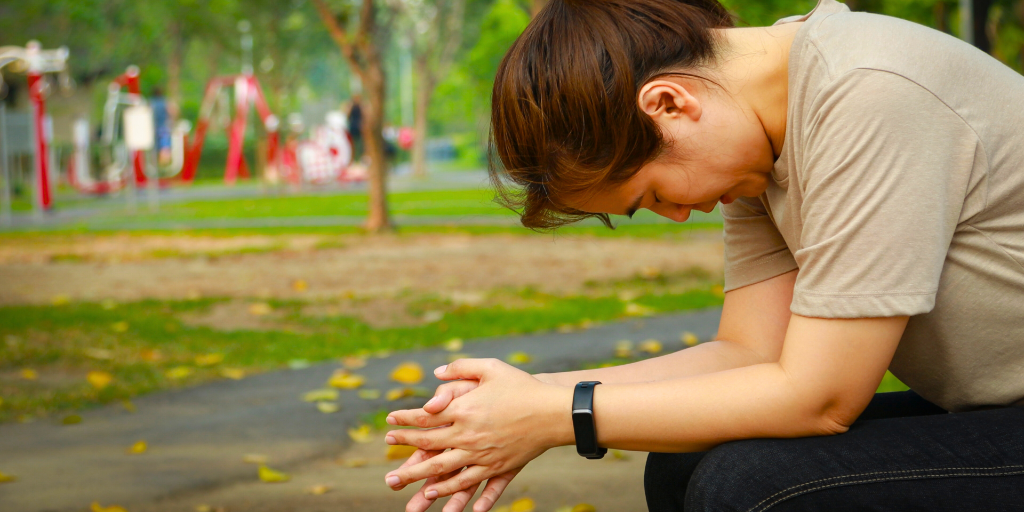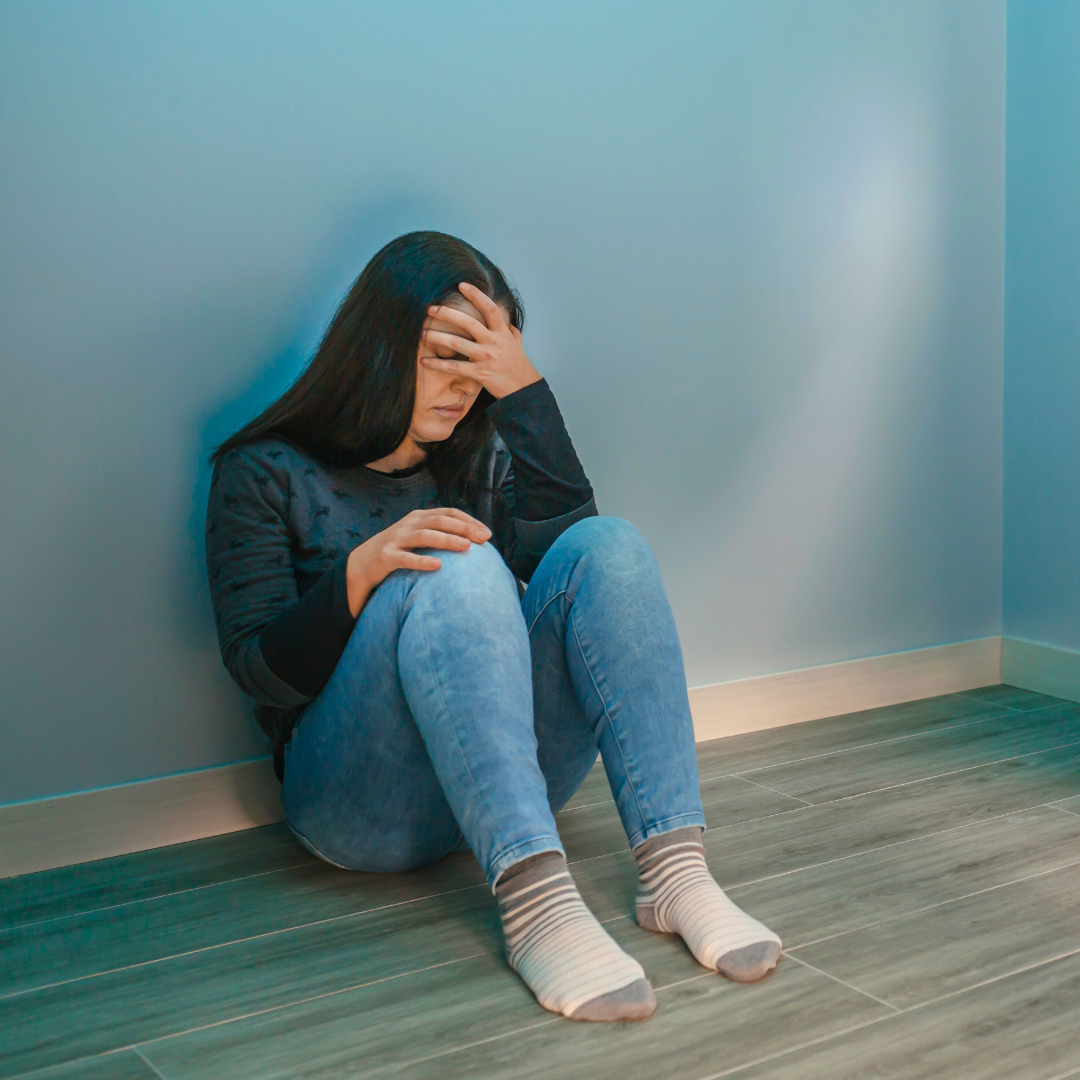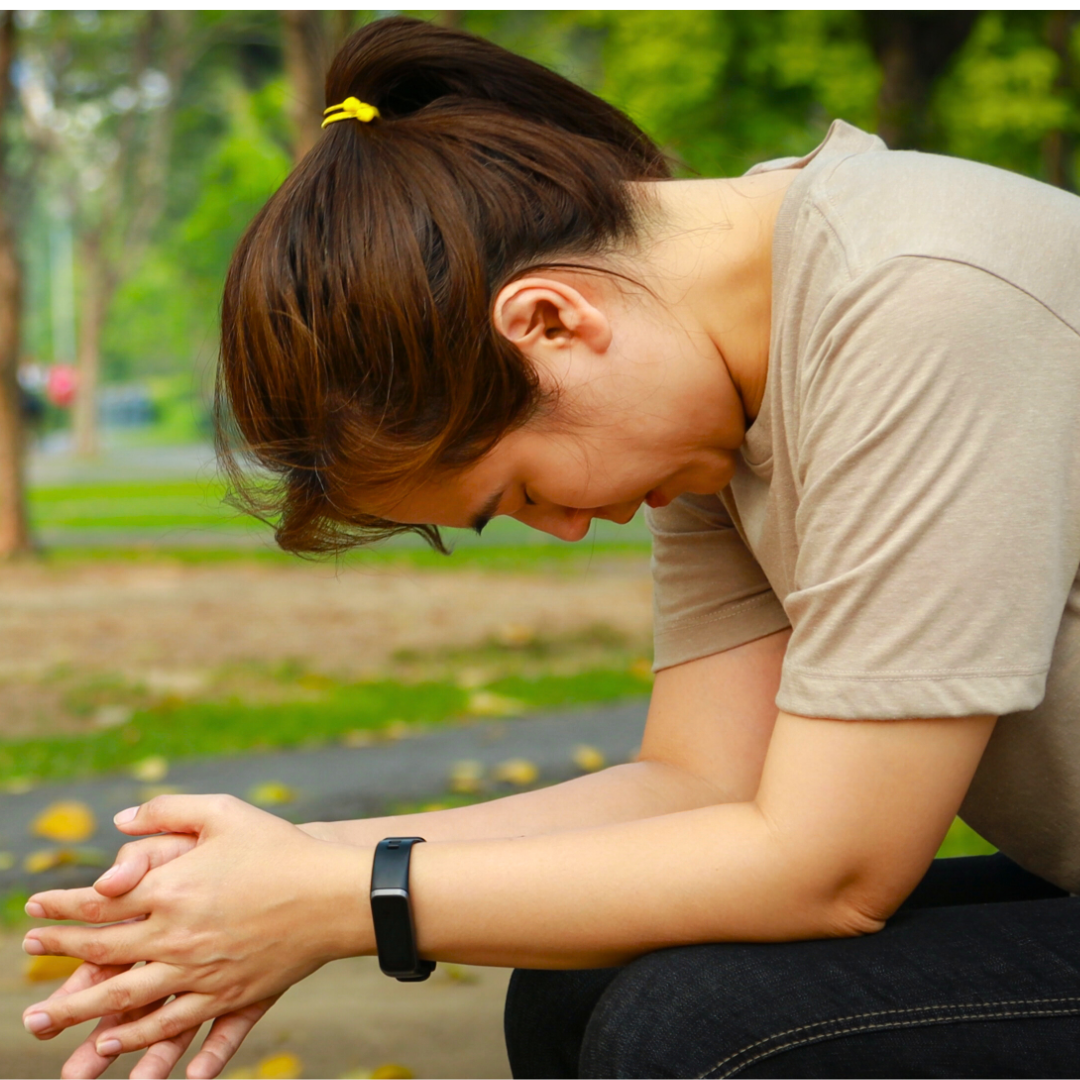
Amanda Woodiel explores the deeply counter-cultural nature of surrendering to unchosen suffering and unchosen obligations.
My close friend is under the pile in a lot of ways: she and her husband just bought a “dream house” which turned out to be more of a nightmare, having discovered multiple major (read: expensive) issues. In the meantime, her third child, who has always been challenging, stopped sleeping some two months ago, and testing has revealed brain abnormalities that will require further testing. Oh, did I mention she’s due with their fifth child in about a month?
So when she said to me, sobbing, “I told my realtor that I’m really upset about the issues the former owners apparently lied about. She told me to ‘trust in Jesus.’ Am I just supposed to roll over and let people walk all over me? I have all this stuff going on with my son, and I’m told to ‘surrender it.’ I’m so sick of hearing that! I don’t know what that looks like! What does this surrender thing MEAN?”, I heard a profound cry of the heart that I know too.
Having written about the surrender novena a couple of times, I thought it was a fair question that deserved some consideration. What does “surrender” even mean? Does it mean inactivity? Does it mean a dumb acquiescence to whatever befalls us?

I don’t think so. I believe that it is, foremost, a disposition of heart that strives to choose trust in God over fear, peace over anxiety, and gratitude over despair when faced with unchosen obligations and unchosen suffering.
Unchosen obligations include, among other things, the responsibility to care for our aging relatives and living a marriage open to new life. Unchosen suffering includes, among other things, illness, being the parent or other caregiver of someone who is ill, and the myriad ways we might suffer from someone else’s sin against us.
As I’ve thought about what our culture despises most, it’s the things that impinge upon our freedom to do what we want, when we want, how we want. Unchosen obligations and unchosen suffering do just that; they are, therefore, the things that arouse the bitterest vitriol in our modern-day society. The response of our culture to unchosen obligations and unchosen suffering is to destroy that which limits its desires. Thus, we have a culture of abortion, euthanasia, and hate toward the Catholic church (who speaks the truth that true freedom is not doing “what we want, when we want, how we want” but the freedom to choose the good.)

I point that out because surrender is the opposite. It is deeply counter-cultural. Its response to unchosen obligations and unchosen suffering is to prefer trust in God over despair, joy over bitterness, and peace over anxiety. It has no connotations toward inaction where action is required. In other words, it does not mean that we don’t pursue justice, nor does it mean that we forgo a medical test that might help our sick child. Surrender is not about passivity; it is actually deeply active! It is an act of the will to turn to God, an act of faith to trust Him, and an act of hope to believe He can and will redeem all things.
I write this as the mother of a child who, at age 15, is a cancer survivor. I know the turmoil of unchosen suffering. My mother passed away when my oldest child was 17 months old, and my father passed away when my fifth child was 17 months old. I know the weariness of the unchosen obligation of caring for aging parents. I know the intense struggle of trying to surrender: that is, trying to choose peace over anxiety, joy over fear, and trust over despair.
To my dear friend who has both unchosen obligations and unchosen suffering, I would say that surrender is neither a “rolling over” nor just putting on a pleasant façade. It is a lifting of the heart dozens—maybe hundreds—of times each day to God as an act of the will, as an act of faith, and as an act of hope. It is actively participating in the battle against fear, despair, and anxiety by wielding the weapons of trust, joy, and peace. It’s a battle that is not won once but that must be waged again and again. This, to me, is what it means to surrender.

Copyright 2024 Amanda Woodiel
Images: Canva
About the Author

Amanda Woodiel
Amanda Woodiel is a Catholic convert, a mother to five children ages 14 to 6, a slipshod housekeeper, an enamored wife, and a “good enough” homeschooler who believes that the circumstances of life—both good and bad—are pregnant with grace. Her oldest son was diagnosed with cancer in the summer of 2022, which is providing plenty of opportunities to test that hypothesis.


.png?width=1806&height=731&name=CatholicMom_hcfm_logo1_pos_871c_2728c%20(002).png)
Comments